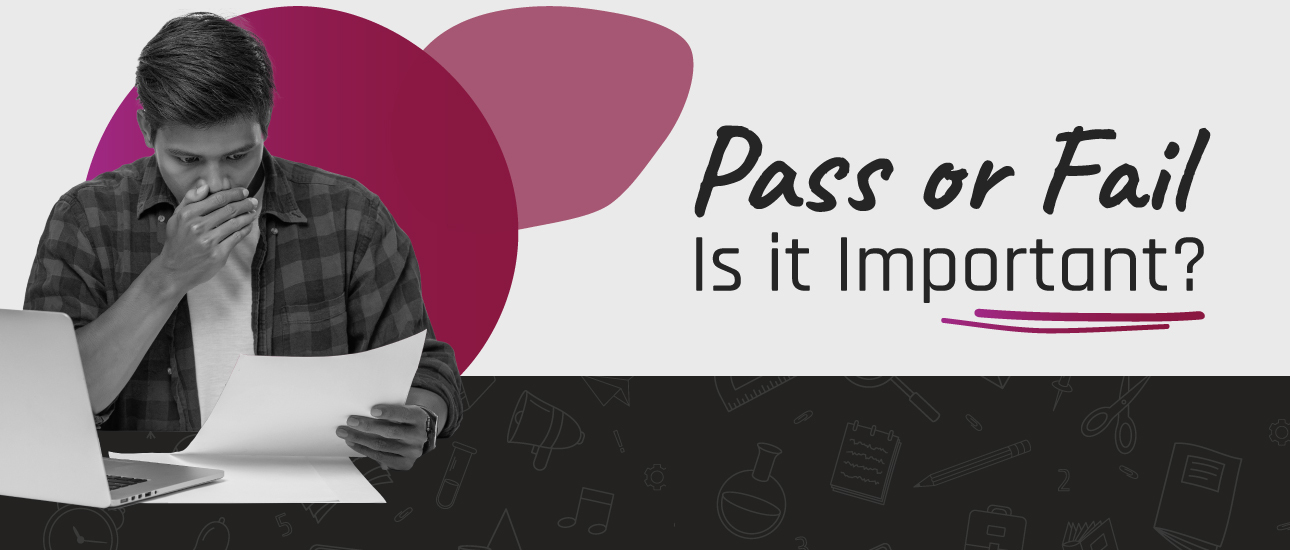LMExams

Exams are an integral part of an education system. They are used to measure a student’s academic performance and knowledge.
However, the results of whether they have passed or failed can impact a student’s mental health very significantly. In the current education system, where they are being stringently evaluated, students are under constant pressure to perform well. They are continuously experiencing the fear of failure. Sometimes, the stress related to preparing for an exam or the pressure to achieve good grades can cause various mental health conditions such as anxiety and depression.
The days leading up to an exam are often the most stressful for students. The long hours of preparation, poor nutrition, the lack of sleep and the side-effects of sleep deprivation can all lead to mental health problems.
According to the National Mental Health Survey of India (2015-2016), the prevalence of mental health conditions among adolescents (13-17 years) is around 7.3%. According to doctors and mental health specialists, about 60% of all students have high anxiety which impairs their health and functioning.
There are various reasons for stress during exams. Let us examine them one by one.
Pressure to perform
Students feel the pressure to perform well in exams especially when the stakes are high. This is true in contexts when it is the final exam of a high school year or a competitive exam to enrol for a professional degree program or a college entrance exam or even an exam to determine eligibility for a scholarship. The pressure to succeed creates anxiety in them. This again happens at two levels. One is to clear the exam itself. And two, there is pressure to perform as well as, or better than, their peers.
Time constraints and fear of failure
Most students face pressure to complete the exam within the stipulated time. This sense of induced urgency leads to stress. Fear of failure is very real as it is seen as a reflection of a student’s intelligence or potential by teachers, parents and peers. This factor again causes stress and anxiety.
Lack of preparation and peer pressure
When a student is not adequately prepared for the exam, they feel overwhelmed and anxious. This leads to them panicking in the last minute. While peer pressure creates a competitive environment and can impact a candidate positively, the compulsion to perform better than one’s peers at times can make a candidate make mistakes and falter in the exam.
A doctor’s view to combat stress
Dr.Rishi Gautam, the assistant professor of psychiatry at the GW School of Medicine & Health Sciences in Washington, D.C, in the US, suggests that students adopt the following methods to combat stress:
- Prepare well
If you do not understand a subject or a chapter, use extra classes, and other resources, or seek extra help from your teacher or another student who knows the subject well, to prepare better for the exam. Take practice tests and systematically study all the material that the test or exam is based on. Do not try and cram everything in one sitting. Or at the eleventh hour. Take your time and learn, and practice, every day. This way, you will cover some of your curriculum on a regular, even daily, basis.
- Practice well
Practice writing down everything that you have learnt before an exam. Adapt this method to learn and relearn in a fashion that works for you. This will help you feel more confident. With repeated practice, your confidence level will go up. This will help with performing well in the exam. Talking to your teachers about questions that you have or asking about things that you don’t understand can also help you a great deal. Your teacher may even help you when you feel anxious by telling you what to focus on.
- Relax before an exam
Do not try to keep learning till the last minute before an exam. Try to relax yourself by closing your eyes and sitting quietly. Take deep breaths and relax your muscles. Always imagine a positive outcome and enjoy the process of writing the exam.
- Eat well, drink lots of water and sleep well
In order that your brain functions properly, eat well and drink plenty of water. Avoid sugary drinks and caffeinated beverages or energy drinks which will cause your blood sugar to fluctuate and increase anxiety. Your sleep is directly related to your academic performance. Ensure that you get a good night’s sleep before your exam so that you can be energetic and write well the next morning.
- See a counselor
A mental health professional can help with psychotherapy to help you work through your thoughts, feelings and behaviours that worsen your anxiety. Seek help, and try to understand what is triggering your stress. Practice relaxation techniques like meditation and exercise regularly based on what your counsellor advises you. Ultimately, when you feel good, you sleep well. When you are rested, you always perform better.
Summary
Even after all these efforts, if you have received your exam results and have failed, do not let this outcome affect you. Failure is not fatal. If you feel low or sad, it is natural to feel those emotions. Learning to deal with failure in exams is important. Remember that everyone who has succeeded has failed at some point earlier. Failure is a lesson that we must learn from and use it to prepare well for the next attempt.
References
https://www.bachelorstudies.com/articles/what-to-do-if-you-fail-your-exams-4240